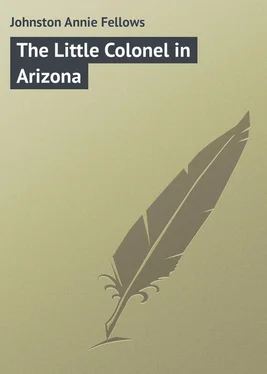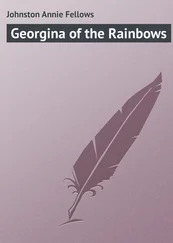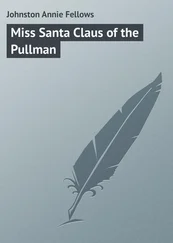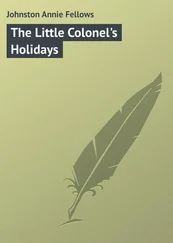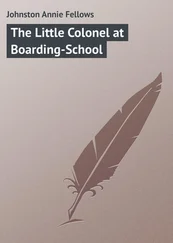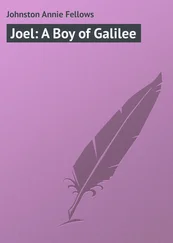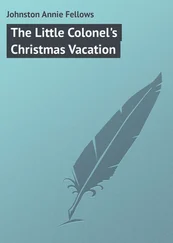Annie Johnston - The Little Colonel in Arizona
Здесь есть возможность читать онлайн «Annie Johnston - The Little Colonel in Arizona» — ознакомительный отрывок электронной книги совершенно бесплатно, а после прочтения отрывка купить полную версию. В некоторых случаях можно слушать аудио, скачать через торрент в формате fb2 и присутствует краткое содержание. Жанр: foreign_prose, foreign_adventure, на английском языке. Описание произведения, (предисловие) а так же отзывы посетителей доступны на портале библиотеки ЛибКат.
- Название:The Little Colonel in Arizona
- Автор:
- Жанр:
- Год:неизвестен
- ISBN:нет данных
- Рейтинг книги:3 / 5. Голосов: 1
-
Избранное:Добавить в избранное
- Отзывы:
-
Ваша оценка:
- 60
- 1
- 2
- 3
- 4
- 5
The Little Colonel in Arizona: краткое содержание, описание и аннотация
Предлагаем к чтению аннотацию, описание, краткое содержание или предисловие (зависит от того, что написал сам автор книги «The Little Colonel in Arizona»). Если вы не нашли необходимую информацию о книге — напишите в комментариях, мы постараемся отыскать её.
The Little Colonel in Arizona — читать онлайн ознакомительный отрывок
Ниже представлен текст книги, разбитый по страницам. Система сохранения места последней прочитанной страницы, позволяет с удобством читать онлайн бесплатно книгу «The Little Colonel in Arizona», без необходимости каждый раз заново искать на чём Вы остановились. Поставьте закладку, и сможете в любой момент перейти на страницу, на которой закончили чтение.
Интервал:
Закладка:
Every time the door opened before the afternoon recess she looked up expectantly, her cheeks growing red and her heart beating fast. But no Paul appeared, or anybody else who had found anything to be restored to its owner. She began to feel anxious, and to wonder if she would ever see her beloved forget-me-not handkerchief again.
At recess she dodged back into the hall after every one had passed out, and stole a quick glance into the other cloak-room. The handkerchief was gone. Somebody had picked it up. Maybe the finder had been too busy to search for the owner. It would be brought in before school closed; just before dismissal probably. The prospect took part of the sting out of the recollection that she was to be kept after school that evening, for the first time in her life.
During the last period in the afternoon, the A Geography class always studied its lesson for next day. Mary specially liked this study, and with her little primary geography propped up in front of her, carefully learned every word of description, both large print and small, on the page devoted to Africa.
"Your hair is coming undone," whispered the girl behind her. "Let me plait it for you. I love to fool with anybody's hair."
Mary nodded her consent without turning around, and sat up straight in her seat, so that Jennie could reach it with greater ease. She never took her eyes from the page. The teacher, who was putting home lessons on the board for the D Arithmetic to copy, was too busy to notice Jennie's new occupation.
Mary enjoyed the soft touch of Jennie's fingers on her hair. It felt so good to have it pulled into place with smooth, deft pats here and there. After the bows were tied on, Jennie still continued to play with it, braiding the ends below the ribbon into plaits that grew thinner and thinner, until they ended in points as fine and soft as a camel's-hair paint-brush. Evidently they suggested brushes to Jennie, for presently she dived into her desk for something quite foreign to school work. It was a little palette-shaped card on which were arranged seven cakes of cheap water-colour paint. The brush attached to the palette had been lost on Christmas Day, before she had had more than one trial of her skill as an artist.
The water-bottle, which held the soap-suds devoted to slate-cleaning, stood behind the pile of books in her desk. She drew that out, and, having uncorked it, carefully dipped the end of one of Mary's braids into it. Then rubbing it across the cake of red paint, she proceeded with a joyful heart to paint the African lion in her geography the most brilliant red that can be imagined.
Mary, still enjoying the gentle pull, little guessed what a bloody tip swung behind her right shoulder. Then the caressing touch was transferred to the left braid, and the greenest of green Bedouins, mounted on the most purple of camels, appeared on the picture of the Sahara.
The signal for dismissal, sounding from the principal's room across the hall, surprised both the girls. The time had passed so rapidly. Mary, putting her hand back to feel if her bows were properly tied, suddenly jerked her right braid forward in alarm. The end was wet, and – was it blood that made it so red? With a horrified expression she clutched the other one, and finding that wet and green, turned squarely around in her seat. She was just in time to see the geography closing on the red lion and green Bedouin, and realized in a flash how Jennie had been "fooling" with her hair.
Before she could sputter out her indignation, the teacher rapped sharply on the table for attention. "Will you please come to order, Mary Ware?" she said, sternly. "Remember, you are to remain after the others are dismissed."
To have been publicly reprimanded twice in one day, to have been kept after school, to have had one's lunch spoiled by ants, and to have been left miserably hungry all afternoon, to have had the shock of a plunge almost to the shoulder in icy water, and the discomfort of having a wet sleeve dried on one's arm, to have had one's hair used as paint-brushes, so that stains were left on the back of the new gingham dress, was too much. Mary could keep inflexible no longer. Then she remembered that no one had brought back the forget-me-not handkerchief, and with that to cap her woes, she laid her head down on the desk and sobbed while the others filed out and left her.
Usually, Holland found her waiting for him by the stile when the grammar grades were dismissed, but not seeing her there, he forgot all about her, and dashed on after the boy who tagged him. Then he and George Lee hurried on home to set a new gopher-trap they had invented, without giving her a thought. The faithful Patty, who always walked with her as far as the turn, had not come back to school after her plunge into the lateral. So it came about that when Mary finally put on her hat and jacket in the empty cloak-room, the playground was deserted. As far as her tear-swollen eyes could see up and down the road, not a child was in sight. With a sob, she stood a moment on the top step of the stile, then slowly swinging her lunch-basket, in which there were no scraps as usual to appease her after-school hunger, she started on the long, two-mile walk home.
It looked later than it really was, for the sun was not shining. She had gone on a long way, when a sound of hoofs far down the road made her look back. What she saw made her give another startled glance over her shoulder, and quicken her pace. Half-running, she looked back again. The sound was coming nearer. So was the rider. Another glance made her stand still, her knees shaking under her; for on the pony was an Indian, a big, stolid buck, with black hair hanging in straight locks over his shoulders.
She looked wildly around. Nobody else was in sight, no house anywhere. The biggest man-eating tiger in the jungles could not have terrified her like the sight of that lone Indian. All the tales that Jack and Holland had told for their mutual frightening, all that she had read herself of tortures and cruelties came into her mind. Their name was legion, and they were startlingly fresh in her memory, for only the evening before she had finished a book called "On the Borders with Crook," and the capture of the Oatman girls had been repeated in her dreams.
Sure that the Indian intended to tomahawk her the instant he reached her, she gave one stifled gasp of terror, and started down the road as fast as her fat little legs could carry her. A few rods farther on her hat flew off, but she was running for her life, and even the handsome steel buckle that had once been Cousin Kate's could not be rescued at such a risk.
She felt that she was running in a treadmill. Her legs were going up and down, up and down, faster than they had ever moved before, but she seemed to be making no progress; she was unable to get past that one spot in the road. And the Indian was coming on nearer and nearer, with deadly certainty, gaining on her at every breath. She felt that she had been running for a week, that she could not possibly take another step. But with one more frantic glance backward, she gave another scream, and dashed on harder than before.
CHAPTER IV.
WARE'S WIGWAM
Phil Tremont, driving out from Phoenix in a high, red-wheeled cart, paused at the cross-roads, uncertain whether to turn there or keep on to the next section-line. According to part of the directions given him, this was the turning-place. Still, he had not yet come in sight of Camelback Mountain, which was to serve as a guide-post. Not a house was near at which he might inquire, and not a living thing in sight except a jack-rabbit, which started up from the roadside, and bounded away at his approach.
Then he caught sight of the little whirl of dust surrounding Mary in her terrified flight, and touched his horse with the whip. In a moment he was alongside of the breathless, bareheaded child.
Читать дальшеИнтервал:
Закладка:
Похожие книги на «The Little Colonel in Arizona»
Представляем Вашему вниманию похожие книги на «The Little Colonel in Arizona» списком для выбора. Мы отобрали схожую по названию и смыслу литературу в надежде предоставить читателям больше вариантов отыскать новые, интересные, ещё непрочитанные произведения.
Обсуждение, отзывы о книге «The Little Colonel in Arizona» и просто собственные мнения читателей. Оставьте ваши комментарии, напишите, что Вы думаете о произведении, его смысле или главных героях. Укажите что конкретно понравилось, а что нет, и почему Вы так считаете.
